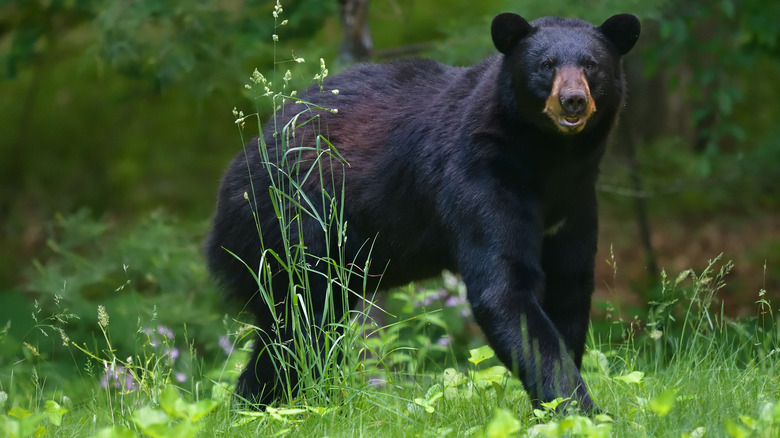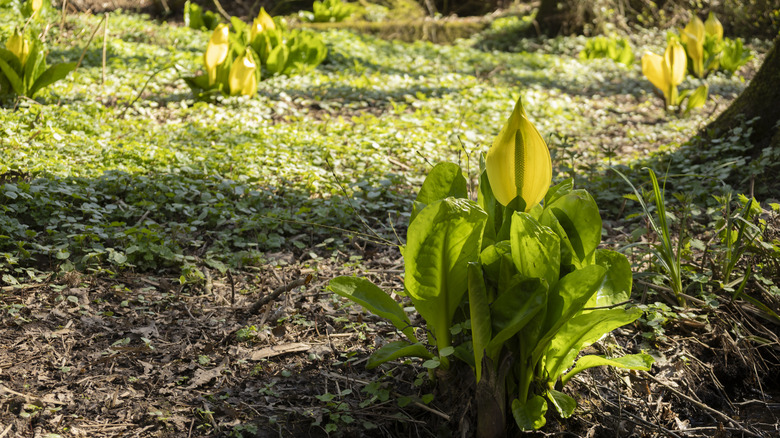The Pungent Hosta Alternative That May Be Attracting Bears To Your Property
Hostas (Hosta plantaginea) are considered among the more popular perennial plants you'll see in home gardens. Not only do hostas do well in both partial and full-shade conditions, but they also provide a lot of visual interest to any garden. Nevertheless, these plants can be difficult to grow because of deer, as well as other pests like snails and slugs. These are just some of the reasons why you might be looking for good alternatives to hostas in the garden. Skunk cabbage (Symplocarpus foetidus) is one such plant you might consider; however, you should know that skunk cabbage is also known to draw hungry bears due to its pungent smell.
Also known as skunk weed or swamp cabbage, skunk cabbage is a perennial known for its large green foliage and its red, yellow, or purple heart-shaped flowers that tend to bloom early in the spring. You may even see pollinators and songbirds visiting skunk cabbage flowers, too. While it can add some ground cover to a garden and grow rather rapidly with little maintenance, skunk cabbage isn't without its own challenges. Perhaps the biggest downside is its skunk-like smell from the plant's flowers, which can certainly be off-putting for many people. And, of course, the fact that it may attract bears, which can become a problem if they learn that your yard offers a favorite food source.
Why skunk cabbage is so appealing to bears, and what you can do
Bears are drawn to skunk cabbage for a few key reasons. First, the pungent smell can attract those who have recently woken up from winter hibernation or are simply in the area looking for a quick snack. For bears, another attractive quality of skunk cabbage is the plant's early blooming time. While many plants flower later in the spring, it's not uncommon for skunk cabbage to emerge early in the season. Bears may also use skunk cabbage as a natural laxative to get their digestive systems working again after being in hibernation. If other food sources are scarce, you might spot black bears consuming more skunk cabbage than normal. As a general rule of thumb, you're more likely to see bears eating the plant during peak meal hours, such as early in the morning and later in the evening.
If you live in a bear-prone area, you might want to reconsider planting skunk cabbage around your property. There are also other ways you can keep bears away from your yard. Some of the best methods involve removing potential sources of food, such as bird seed, pet food, and unsealed garbage cans. Existing skunk cabbage in your yard or garden may require removal, particularly if the plants are attracting bears to your property. Finally, another reason you should kill skunk weed has to do with whether you have young children and pets around your property. While bears, deer, snapping turtles, and other wildlife might be able to eat skunk cabbage, this plant can be toxic to humans, dogs, cats, and horses.

